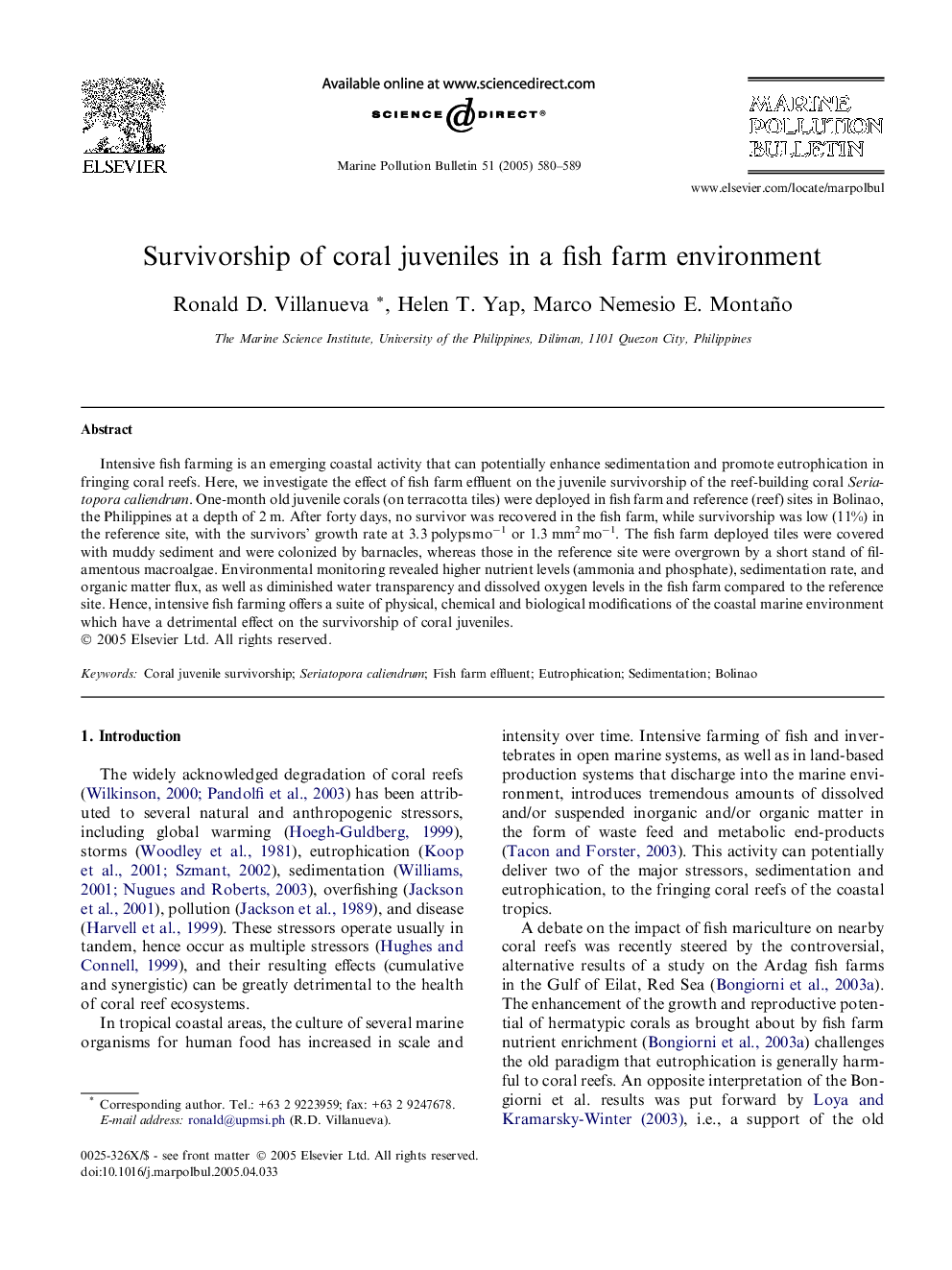| Article ID | Journal | Published Year | Pages | File Type |
|---|---|---|---|---|
| 9465758 | Marine Pollution Bulletin | 2005 | 10 Pages |
Abstract
Intensive fish farming is an emerging coastal activity that can potentially enhance sedimentation and promote eutrophication in fringing coral reefs. Here, we investigate the effect of fish farm effluent on the juvenile survivorship of the reef-building coral Seriatopora caliendrum. One-month old juvenile corals (on terracotta tiles) were deployed in fish farm and reference (reef) sites in Bolinao, the Philippines at a depth of 2 m. After forty days, no survivor was recovered in the fish farm, while survivorship was low (11%) in the reference site, with the survivors' growth rate at 3.3 polyps moâ1 or 1.3 mm2 moâ1. The fish farm deployed tiles were covered with muddy sediment and were colonized by barnacles, whereas those in the reference site were overgrown by a short stand of filamentous macroalgae. Environmental monitoring revealed higher nutrient levels (ammonia and phosphate), sedimentation rate, and organic matter flux, as well as diminished water transparency and dissolved oxygen levels in the fish farm compared to the reference site. Hence, intensive fish farming offers a suite of physical, chemical and biological modifications of the coastal marine environment which have a detrimental effect on the survivorship of coral juveniles.
Keywords
Related Topics
Physical Sciences and Engineering
Earth and Planetary Sciences
Oceanography
Authors
Ronald D. Villanueva, Helen T. Yap, Marco Nemesio E. Montaño,
